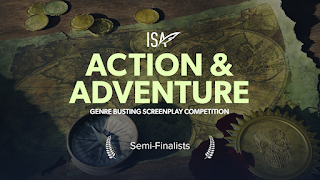When Kyle Minor and I first began researching Jan Karski's life, we knew we'd discovered a story that demanded to be told on film. Born Jan Kozielewski in 1914 in Łódź, Karski became one of the most important witnesses to the Holocaust and a crucial courier for the Polish Underground during World War II. As a member of the Polish resistance, he risked his life repeatedly to document Nazi atrocities, even voluntarily entering the Warsaw Ghetto and a transit camp near Izbica to gather firsthand evidence of the systematic extermination of Jews. His 1942-43 mission to the West, where he met with foreign ministers, intellectuals, and even President Franklin D. Roosevelt, represented one of the earliest attempts to alert Allied leaders to the full horror of the Holocaust. The tragedy is that despite his detailed reports and desperate pleas for intervention, his warnings went largely unheeded.
After the war, Karski's story took another remarkable turn. Unable to return to Communist Poland, he emigrated to the United States in 1952, where he earned his PhD and became a beloved professor at Georgetown University for forty years. He rarely spoke about his wartime experiences until Claude Lanzmann's groundbreaking documentary Shoah in 1985, where his testimony became one of the film's most powerful segments. Karski dedicated his later years to education and bearing witness, receiving numerous honors. He understood that memory itself was a form of resistance, and until his death in 2000, he carried the weight of being one of the first to tell the world about the Holocaust while it was happening—a messenger whose message arrived too early for a world not yet ready to believe.
Writing this screenplay with Kyle has been one of the most profound experiences of my creative life. We've spent countless hours immersed in archives, memoirs, and testimonies, working to honor not just Karski's extraordinary courage but also the moral complexity of his story—a man who did everything humanly possible to save lives, yet lived with the burden of feeling he hadn't done enough. Kyle's incredible sense of narrative structure combined with our shared commitment to historical authenticity has resulted in a script that we believe captures both the thriller-like intensity of Karski's wartime missions and the deeper questions about moral courage, institutional failure, and the price of bearing witness. As we move toward production in 2026 with a budget and shooting script, I'm thrilled that audiences will finally see this hero's story on screen, reminding us that one person's courage to speak truth to power can echo through history, even when the world initially refuses to listen.







































